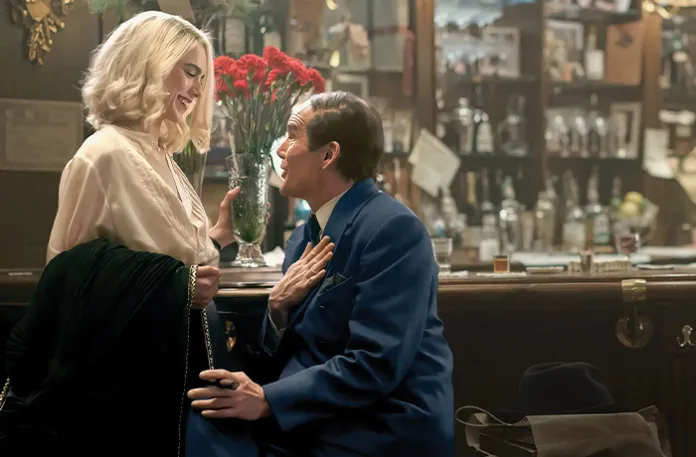As a young teenager, flipping through channels on basic cable, a single scene burned itself into my memory. It was the final moments of a film I later discovered was *Words and Music*, a story about Richard Rodgers and Lorenz Hart. Mickey Rooney, as Hart, stumbled into the rain, a heartbreaking end following a desperate attempt to experience one last night of joy.
At the time, the full weight of the scene was lost on me. I knew Rodgers and Hart penned some of the most beloved songs of the era, and that Rodgers would later team with Hammerstein. But even through the Hollywood gloss, it was clear Hart’s life had been marked by profound sadness, culminating in a tragically lonely demise.
That haunting image resurfaced vividly after watching Richard Linklater’s *Blue Moon*. The film centers on Ethan Hawke’s portrayal of Hart, unfolding on the very night of *Oklahoma!*'s triumphant premiere – the musical that signaled the end of Rodgers and Hart’s legendary partnership.

The film’s setting is remarkably contained: the first floor of Sardi’s in Manhattan. This limitation, coupled with a small principal cast, might suggest a claustrophobic art house experience. Instead, *Blue Moon* is surprisingly expansive, both funny and deeply moving, achieving a remarkable emotional resonance within its limited scope.
The story begins mirroring *Words and Music*, with Hart’s final, desolate moments in the rain. This prologue is stark and unambiguous – a portrait of a man succumbing to his demons. The narrative then rewinds seven months, finding Hart leaving the *Oklahoma!* celebration and seeking solace in a quiet bar.
He enters a nearly empty Sardi’s, immediately requesting the bartender, Eddie, not to serve him. He’s attempting sobriety, a promise he’ll break repeatedly throughout the night. Over seven drinks, Hart engages in a series of poignant conversations, desperately seeking connection and bracing for the inevitable.
He speaks with the piano player, a lone patron who happens to be E.B. White, and anxiously awaits the arrival of two figures: Elizabeth, a young woman who has captured his attention, and Richard Rodgers, whose partnership with Hammerstein will irrevocably alter Hart’s life. Both arrive, and both deliver a rejection, one gentle, the other devastatingly blunt.
This is the core of *Blue Moon*, but to define it solely by its plot is to miss its profound depth. Like Joyce’s *Ulysses*, it’s a portrait of a man on the precipice, a study of an artist facing his own mortality. The film is both intensely personal and universally relatable.
Larry Hart’s character is rich with interpretation – insecurity, hidden desires, a desperate clinging to a fading career. Elizabeth, though inspired by a real person, functions as a powerful symbol: the unattainable ideal, a stand-in for Rodgers himself, and the embodiment of the optimism Hart could never grasp.
Hart remains confined to the bar, never truly entering the celebratory party upstairs. He physically attempts to hold Rodgers back, delaying his entrance into a world that no longer has a place for him. The final blow comes on the staircase, with Rodgers standing before a poster for *Show Boat* – a testament to his new partnership with Hammerstein – effectively ending their collaboration.
The beauty of *Blue Moon* lies in its ability to resonate on multiple levels. You can dissect its symbolism, analyze its historical context, or simply surrender to its emotional power. It’s a remarkably effective biopic, elevated by Ethan Hawke’s transformative performance. He masterfully embodies Hart’s physicality and vulnerability, delivering a performance of raw honesty.
Andrew Scott, as Rodgers, conveys a subtle but potent sense of ambition and detachment through nuanced expressions and gestures. The film is also filled with subtle nods to the world of musical theatre, rewarding those familiar with the era. But these details never feel essential; the film stands powerfully on its own.
Ultimately, *Blue Moon* resists easy categorization or grand thematic pronouncements. It’s a phenomenal film, a testament to the power of performance and direction. It’s a film that lingers in the mind, its titular tune echoing long after the credits roll. It’s an experience not to be missed.




